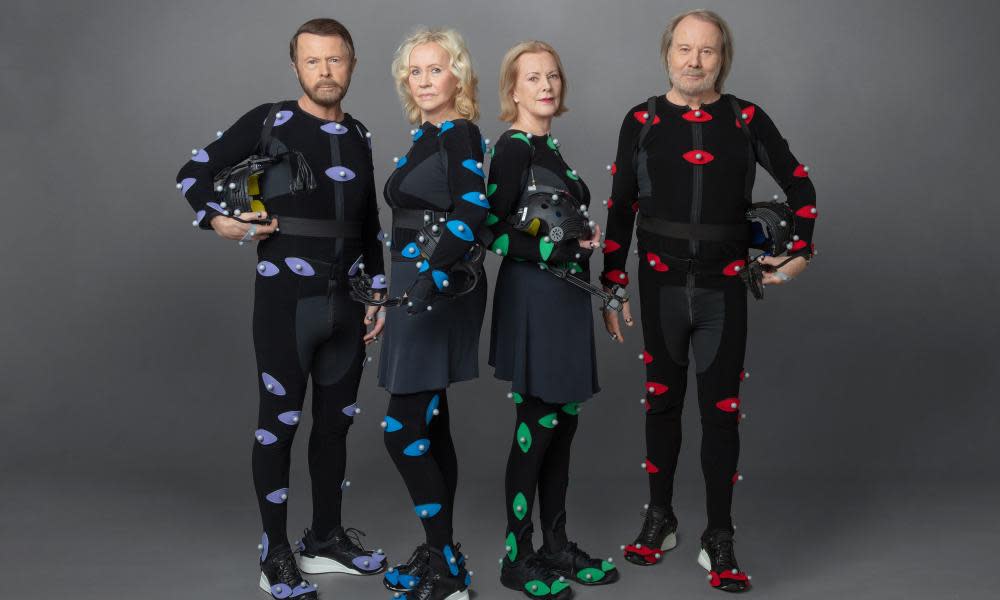The Guardian view on Abba: still rocking the room 40 years on

Mamma mia, here we go again, except this time it will be different. Abba will be back on stage next Friday to promote their reunion album, Voyage, with a stadium show that circumvents all the old jokes about rock dinosaurs by using cutting-edge holographic technology to capture them singing the songs, while retro-styling them to look as they did in their 1970s heyday. So they won’t actually be there at all.
The production team behind this show breathlessly exclaimed that five weeks of filming was enough to capture the “soul” of Abba. A mixed reception for the album itself will not prevent the faithful from flocking to the custom-built stadium in east London for the six-month run, where their avatars will perform alongside a live band. Ever since they won the 1974 Eurovision song contest with Waterloo, Abba have been critic-proof. “No thank you for the music” is how the Guardian received their latest album. But everybody knows Abba’s tunes. The jukebox musical Mamma Mia! is the West End’s sixth longest-running show, and the film based on it remains the 20th highest-grossing film at the UK box office.
Those who believe that the Voyage concerts will set a new precedent should take some heed of earlier attempts to do so. Dave Clark’s West End musical Time, in 1986, fatuously brought Sir Laurence Olivier back to the stage as a 14-foot high hologram. Until such time as someone attempted to reconstruct the Alps for a rock musical about Heidi, opined the New York Times, this was musical theatre’s “most sensational contrast between mountainous spectacle and molehill content”.
But times have changed, and Abba, always so good at capturing the zeitgeist, may yet have done it again. The last two years have accelerated the move towards a hybrid culture that was already happening with cinema screenings of live shows. In terms of technology, it was a period of such rapid innovation that the pre-pandemic idea of recording an opera, ballet or play by sticking a couple of fixed cameras in front of the stage seems like prehistory.
Experiments such as the livestreamed concert that Dua Lipa trialled back in 2020 don’t always work, but it would be a shame if they were abandoned. The move towards virtual “live” events chimes with evolving ideas of personal risk and the carbon economy. The four Abba members are now in their 70s. They and their entourages won’t be racking up air miles or exposing themselves nightly to new viral variants. For all the sequins and spectacle, there will only be 10 musicians on stage at the Abba stadium. And for 1970s nostalgists eager for a more embodied entertainment, there will always be Elton John.
Voyage may turn out to be an innovative dead end, but its real value is as a reminder that a live show is a communal event, which draws its energy from the desire of people in the room to have a good time together. It will be a blast for their many fans to strap on those dancing shoes again, with a quartet of pop idols who will never age.


